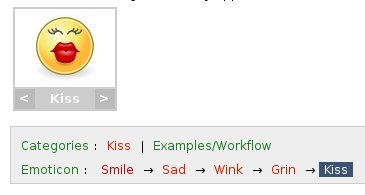News (blog)
28 January 2014[edit] |
| Posted by Nad on 28 January 2014 at 15:40 |
|---|
This post has the following tags: News
|
|
MaidSafe claims to have built a Bitcloud-like system[edit]Source: wired.co.uk One of the great things about the architecture of the internet is that it is truly decentralised. By design, no one rules it and everyone can use it. But in the last two decades, a small collection of global technology companies have come to control the bulk of internet traffic. Google, Facebook, and others have captured our attention and with it, our data. In the face of such consolidation, concerns about the implications for personal privacy and security have never been more pressing. This is particularly the case following the NSA/GCHQ global surveillance revelations. For many, the solution to this situation is to return the internet to its original state -- distributed, open, and decentralised.It is certainly not the first time that the idea of a peer-to-peer redesign of the whole internet has been vaunted, and it holds great appeal to those who think end-to-end encryption is needed. But such a system, workable at scale, is still just a thought experiment. Or is it? A Scottish company, MaidSafe, claims that it has nearly finished building a system that does what Bitcloud is proposing. You can imagine our scepticism when a company we've never heard of, in the tiny town of Troon, with a terrible name and a 12-minute promotional video told me it had solved one of the most compelling problems on the internet. [more...] |
20 April 2010[edit] |
| Posted by Nad on 20 April 2010 at 01:47 |
|---|
This post has the following tags: News
|
|
Memristor chips coming soon[edit]In 1971, electrical engineering professor Leon Chua proposed a theoretical basic electronics component called a memristor. In 2008, Hewlett Packard brought the memristor out of theory and into the real world. See Memristor: the fourth circuit element. Memristors have similar physical behavior as synapses in the human brain. Production scale memristor memory with tens of billions of memristors should mean that memristors that mimic over one hundred billion synapses could only be a few years away. The human brain has one hundred trillion synapses. A human scale emulation of one hundred trillion synapses might only take one hundred near term memristor chips. Having comparable hardware in terms of numbers of similar components does not mean you can make them behave like a brain, but getting hardware with the right number of neurons and synapses would give researchers a reasonable chance at human brain emulation. The hardware could be ready in the 2020-2025 timeframe for neurons and synapses. more...
|
27 June 2007[edit] |
| Posted by Nad on 28 June 2007 at 08:00 |
|---|
This post has the following tags: News
|
|
The Semantic Web[edit]I've imported the text of the original semantic web document by Tim Berners Lee, "the father of the web" into a local article called The Semantic Web. It was written by him and a couple of others back in 2001 and is still and excellent vision and description of the technologies which are now in widespread use, but have still yet to explode exponentially like the Web did in 1994.
|
10 April 2007[edit] |
| Posted by Nad on 10 April 2007 at 02:45 |
|---|
This post has the following tags: News
|
|
Organic Design Wikia[edit]A few of the people involved in Organic Design and related projects have expressed interest in a simple method of maintaining multiple wiki's on one server. So in response to this I'm going to set up Organic Design, Peerix, WikiFS and Zenovia as a single MediaWiki 1.93 which will use different database, extension settings and image files depending on the domain that the requested pages are in. Managing which wiki's are active, which extensions and features are active within them or creating new ones will be achieved by creating an article containing a filled in wiki template. This template will include fields to enable/disable the wiki, to enable/disable available extensions, specify domain names and their skins and to specify backup schedule and locations. All the current wiki databases will be upgraded to 1.9.3 format, and their tables will be separated out to individual databases so that they can be distributed separately or moved to other hosts more easily.
|
14 October 2007[edit] |
| Posted by Nad on 13 October 2007 at 21:40 |
|---|
This post has the following tags: News
|
|
Simple Calendar works in users langauge[edit]The Simple Calendar extension has been updated to version 1.2.3 today. The new version allows the month and day headings to be rendered in accord with the users language preference as can be seen in the image to the right. |
15 May 2010[edit] |
| Posted by Nad on 15 May 2010 at 04:16 |
|---|
This post has the following tags: News
|
|
Books delivered world-wide for free!!![edit]I just found this amazing site called The Book Depository which has an excellent selection of over two million books at very good prices, and is somehow able to deliver almost anywhere in the world completely free!!!. They have a cool live map showing what books are being bought around the world right now :-) The Book Depository is the UK's largest dedicated online bookseller offering the largest range of titles in the world, available for dispatch within 48 hours. Founded in 2004 to make 'All Books To All' we focus on selling 'less of more' rather than 'more of less', differentiating ourself from other retailers who increasingly focus on bestsellers. |
3 December 2008[edit] |
| Posted by Nad on 3 December 2008 at 03:26 |
|---|
This post has the following tags: News
|
|
Workflow extension updated from user feedback[edit]The Workflow extension has been redesigned to be easier to use and to allow workflows to be optionally defined within templates to be added to articles via transclusion. A workflow is a sequence of categories that an article is moved between as it receives attention from different roles who each work on it and then recategorise it so that it can receive attention from the role that performs the next activity. This allows users in the MediaWiki environment to work on projects together using the blackboard metaphor. The image to the right shows the workflow from workflow example. Clicking on the left or right arrows below the icon cause it to cycle through its sequence of categories, and then the article is updated ajaxly so that the new state is permanent and exhibits an entry in the revision history. The extension also adds information to the category links area at the bottom of the page as can be seen in the image. For each workflow in the article, all the states of its category sequence are shown in order with the current one highlighted. |
11 November 2013[edit] |
| Posted by Nad on 10 November 2013 at 20:06 |
|---|
This post has the following tags: News
|
|
Bitgroup - a P2P groupware project[edit]Organic Design has begun developing a new project called Bitgroup which is a peer-to-peer group-ware and social-network application based on Bitmessage. It allows groups to communicate and organise securely and privately without the need for centralised servers which can be shut down or compromised. It's also designed to work effectively in areas that have very limited or intermittent internet capabilities, and will eventually be able to work without internet at all by using local networks and removable media as it's transport mechanism. [more...]A private P2P framework is essential in our view, but there's also many other things that we at Organic Design have found to be invaluable tools to have available in a decentralised groupware framework, such as support for workflow and contract oriented organisation, trust groups and the prioritisation of the sneakernet and meshing support to name a few. We have so many specific needs and ideas that we'd like to experiment with ourselves, that having our own peer-to-peer groupware framework is the best way forward for us even if there may be some other systems that are more mature or better in some respects. See also: |
3 May 2012[edit] |
| Posted by Nad on 4 May 2012 at 01:06 |
|---|
This post has the following tags: News
|
|
No news from Iceland?[edit]In Iceland, the people has made the government resign, the primary banks have been nationalized, it was decided to not pay the debt that these created with Great Britain and Holland due to their bad financial politics and a public assembly has been created to rewrite the constitution. And all of this in a peaceful way. A whole revolution against the powers that have created the current global crisis. This is why there hasn’t been any publicity during the last two years: What would happen if the rest of the EU citizens took this as an example? What would happen if the US citizens took this as an example.The people go out in the streets and demand a referendum. In January 2010 the president denies the approval and announces a popular meeting. In March the referendum and the denial of payment is voted in by 93%. Meanwhile the government has initiated an investigation to bring to justice those responsible for the crisis, and many high level executives and bankers are arrested. The Interpol dictates an order that make all the implicated parties leave the country. In this crisis an assembly is elected to rewrite a new Constitution which can include the lessons learned from this, and which will substitute the current one (a copy of the Danish Constitution). 25 citizens are chosen, with no political affiliation, out of the 522 candidates. For candidacy all that was needed was to be an adult and have the support of 30 people. The constitutional assembly starts in February of 2011 to present the ‘carta magna’ from the recommendations given by the different assemblies happening throughout the country. It must be approved by the current Parliament and by the one constituted through the next legislative elections. So in summary of the Icelandic revolution:
Have we been informed of this through the media? Has any political program in radio or TV commented on this? No! The Icelandic people have been able to show that there is a way to beat the system and has given a democracy lesson to the world. TIME TO STOP THE GLOBALISTS IN THEIR TRACKS! Love John Francis See also: |
6 October 2007[edit] |
| Posted by Nad on 6 October 2007 at 03:59 |
|---|
This post has the following tags: News
|
|
Help digitise old books by blocking spambots![edit]The OrganicDesign wiki is testing out the reCAPTCHA extension which not only helps us block spambots, but also helps old books to get digitised at the same time! A CAPTCHA is a program that can tell whether its user is a human or a computer. You've probably seen them — colorful images with distorted text at the bottom of Web registration forms. CAPTCHAs are used by many websites to prevent abuse from "bots," or automated programs usually written to generate spam. No computer program can read distorted text as well as humans can, so bots cannot navigate sites protected by CAPTCHAs. About 60 million CAPTCHAs are solved by humans around the world every day. In each case, roughly ten seconds of human time are being spent. Individually, that's not a lot of time, but in aggregate these little puzzles consume more than 150,000 hours of work each day. What if we could make positive use of this human effort? reCAPTCHA does exactly that by channeling the effort spent solving CAPTCHAs online into "reading" books. To archive human knowledge and to make information more accessible to the world, multiple projects are currently digitizing physical books that were written before the computer age. The book pages are being photographically scanned, and then, to make them searchable, transformed into text using Optical Character Recognition (OCR). The transformation into text is useful because scanning a book produces images, which are difficult to store on small devices, expensive to download, and cannot be searched. The problem is that OCR is not perfect. The reCAPTCHA project improves the process of digitizing books by sending words that cannot be read by computers to the Web in the form of CAPTCHAs for humans to decipher. More specifically, each word that cannot be read correctly by OCR is placed on an image and used as a CAPTCHA. This is possible because most OCR programs alert you when a word cannot be read correctly. But if a computer can't read such a CAPTCHA, how does the system know the correct answer to the puzzle? Here's how: Each new word that cannot be read correctly by OCR is given to a user in conjunction with another word for which the answer is already known. The user is then asked to read both words. If they solve the one for which the answer is known, the system assumes their answer is correct for the new one. The system then gives the new image to a number of other people to determine, with higher confidence, whether the original answer was correct. Currently, reCAPTCHA are helping to digitize books from the Internet Archive. |











